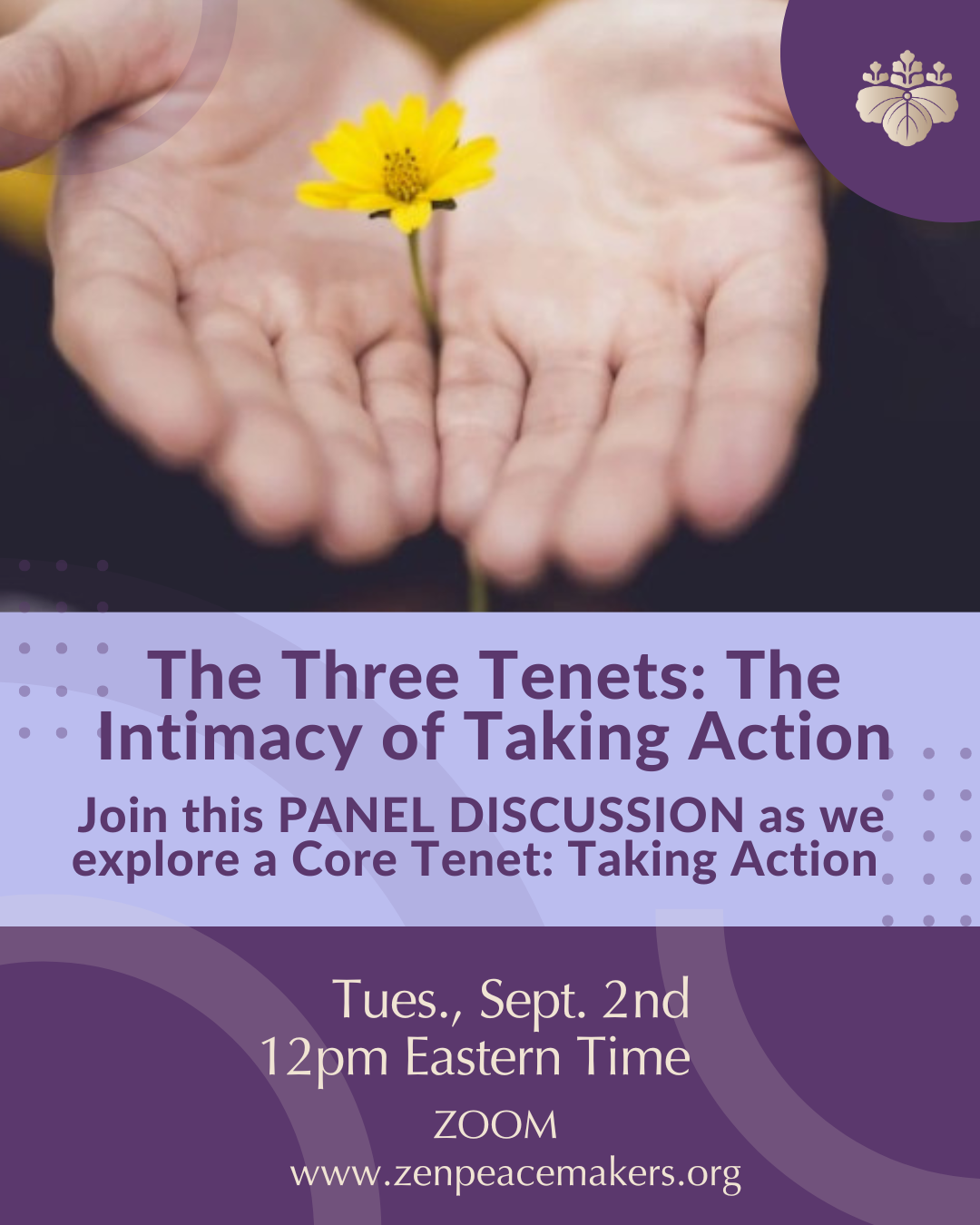BEARING WITNESS RETREAT
ETHICAL GUIDELINES
Bearing witness retreats often take us to places of deep suffering and even trauma. Participants are encouraged to bear witness not just to certain external and historical events, but also to personal issues of vulnerability and darkness. While the entire staff, including spirit holders, council facilitators, religious leaders and coordinators, tries to create a retreat environment that serves these goals, it is the responsibility of all of us, staff and participants alike, to maintain this environment for the sake of all participants. For this reason I agree to uphold this Code of Ethical Conduct, which is based on principles of trust, integrity, justice, respect and accountability, in order to nurture this bearing witness retreat.
I understand that this retreat provides an opportunity to practice the Three Tenets of the Zen Peacemakers: (1) Not Knowing, (2) Bearing Witness, and (3) Taking Action from Not Knowing and Bearing Witness.
>> Accountability. Maintaining the well-being of the retreat is the mutual responsibility of all participants. I agree to consciously cultivate a space where all voices and opinions are heard, the diversity of individual experiences is affirmed and encouraged, and where all participants feel safe in sharing personal shortcomings and concerns. Clear communication supports taking responsibility for both oneself and the retreat, and is thus an act of service to all participants.
>> Transparency. Transparency is crucial to maintaining balance and harmony. I will speak out on matters that, if left unaddressed, may foster doubt, suspicion or resentment.
Self-Awareness. Knowing that this retreat may be arduous to both mind and body, I will take responsibility for monitoring and caring for myself.
>> Right Speech. Mutual respect manifests when we treat each other with dignity and engage with everyone truthfully and compassionately. Harmony is promoted when I observe right speech: refraining from lies, self-serving talk, slander, or apportioning blame. It also includes proactively and skillfully speaking out in a manner that respects all persons involved. Recognizing the potency of anger, I will practice self-awareness and endeavor to express myself openly and generously, without blame or rejection.
>> Confidentiality. I understand that the retreat includes processes and procedures that may involve the sharing of sensitive personal information, and that this information should be held in confidence as much as possible. This caution particularly applies to staff members. On those occasions when, for the well being of specific individuals, staff members need to consult with each other, such consultations will be maintained in confidence.
Boundaries. I am responsible for clarifying, maintaining and communicating appropriate and clear boundaries with other participants.
>> Sexual Conduct. I acknowledge that sexuality is a highly vulnerable part of human experience, and even more so in retreats that challenge our bodies, minds and hearts. For this reason I will not form a new sexual relationship during the retreat with other retreat participants.
>> Use of Intoxicants. I understand that clarity of mind is a fundamental component of the practice of the three tenets. The use of non-medically prescribed intoxicants during retreats is acceptable only when prescribed by the retreat staff.
>> Practices Outside the Scope of the Retreat.All activities should support the purpose of this retreat as declared in the advertised description. No staff member or leader can give teachings or practices that lie outside its purview. Any doubts or questions about this should be taken to the spirit holders for resolution.


